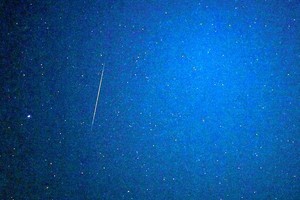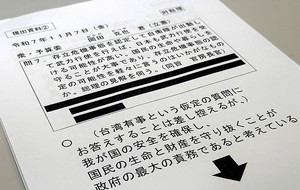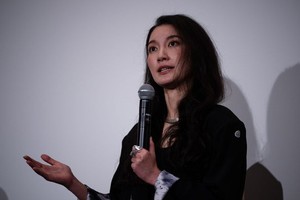By ARATA MITSUI/ Staff Writer
December 8, 2023 at 15:45 JST
Even though his uncle was glorified as a "war god" for dying in the attack on Pearl Harbor, his 87-year-old nephew hopes that another person is never deified like that again.
Eighty-two years after the attack on Pearl Harbor on Dec. 7, 1941, Naomasa Iwasa reflected on how his uncle was posthumously honored as a war god in Japanese propaganda.
“It’s important to pass on the memories of how war fervor was stirred up,” Naomasa said. “I wish for a world that never again glorifies war gods.”
His 26-year-old uncle Naoji Iwasa was one of nine sailors piloting Imperial Japanese Navy midget submarines who lost their lives that day. They were extolled as “nine war gods” for the sacrifice they made for their country.
Naomasa recalls how the wartime Japanese public, fervently nationalistic and believing in self-sacrifice, quickly changed its mindset after the nation's crushing defeat.
SOMBER NOTIFICATION TO THE FAMILY
Around the spring of 1942, a black car stopped in front of a farmhouse in Maebashi, Gunma Prefecture.
Naomasa, who was 6 at that time, watched as Imperial Japanese Navy Minister Shigetaro Shimada and other officials, dressed in military uniforms, entered the thatch-roofed house.
The house belonged to Naoji's parents and the somber visitors were there to notify them of their son's death.
Naoji had participated in the Pearl Harbor attack aboard a small two-man submarine, which was difficult to return to the mother ship after being launched.
He was one of the 10 sailors who were dispatched aboard five midget submarines.
The Imperial Japanese military hid the existence of one of the submariners who survived and was taken prisoner and deified the nine who died in the attack.
After his death, Naoji was promoted two ranks from lieutenant to commander. Newspapers and radio reports praised him as one of the nine war gods.
Songs were written and movies were made about Naoji, and his grave was built in a local temple.
Naomasa found himself saying he would follow his uncle and join the Imperial Japanese Navy, a sentiment echoed by other children around him.
DEIFICATION TURNS BITTER
However, the end of the war brought a change in the public’s view.
Fewer people visited Naoji's grave and some residents of Maebashi even criticized the presence of the “war god for making the city a target of Allied air raids.”
Despite feeling uncomfortable about being constantly seen as “the nephew of the war god,” Naomasa tried to live his life without worrying about it.
Even now, he sometimes gets told at reunions, “I was forced to visit your uncle’s grave.”
Naomasa reflected that during wartime it was considered normal to sacrifice oneself for the entire nation to continue the war effort.
“It was insane,” he said. “Now I know that it was a mistake, but it was difficult to recognize that at the time.”
Even today, conflicts continue around the world. Russia has invaded Ukraine and the Israel military is clashing with the Palestinian Islamist group Hamas.
Every time Naomasa hears such news, he is reminded of Japanese society during the war and the patriotic fervor that glorified his uncle's sacrifice.




















A peek through the music industry’s curtain at the producers who harnessed social media to help their idols go global.
A series based on diplomatic documents declassified by Japan’s Foreign Ministry
Here is a collection of first-hand accounts by “hibakusha” atomic bomb survivors.
Cooking experts, chefs and others involved in the field of food introduce their special recipes intertwined with their paths in life.
A series about Japanese-Americans and their memories of World War II